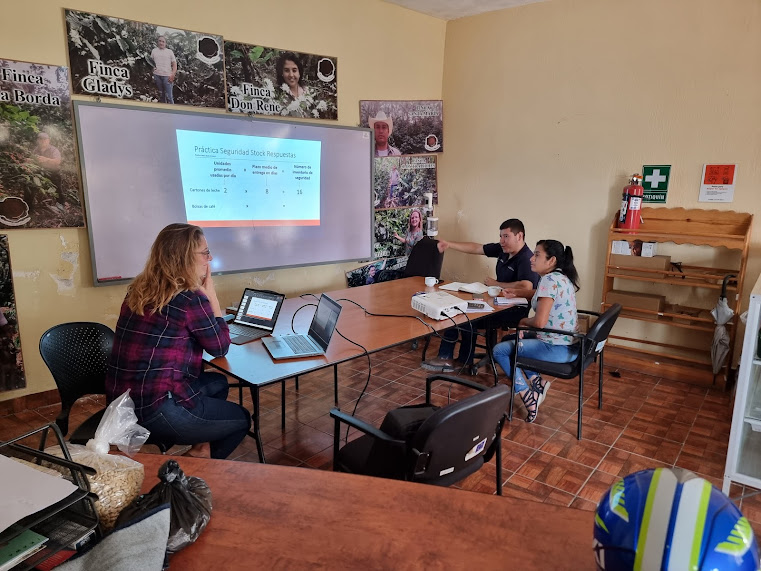Small Business Training for a Guatemalan Coffee Association

By Allison Greene, F2F Volunteer in April 2023 About the Assignment: Allison Greene supported the Asociacion de Productores de Olopa (APOLO) as a Business Development Expert. Ms. Greene trained APOLO staff on how to forecast sales, maintain inventory, conduct basic accounting, and aspects of operating a small business. Ms. Greene has professional experience in private sector consulting, business development, implementation of food product innovations, and project management. I traveled as a Small Business Operations expert to support APOLO, a coffee association and café, in Olopa, Chiquimula, Guatemala. My assignment was to provide training on basic accounting practices, inventory control, sales forecasting, and reviewing various profit scenarios for the newly opened café. Over the course of my two weeks with the APOLO team, I had the opportunity to witness them in action in the office and the café, which better informed my training materials and helped me create unique systems just f
.png)
.jpeg)